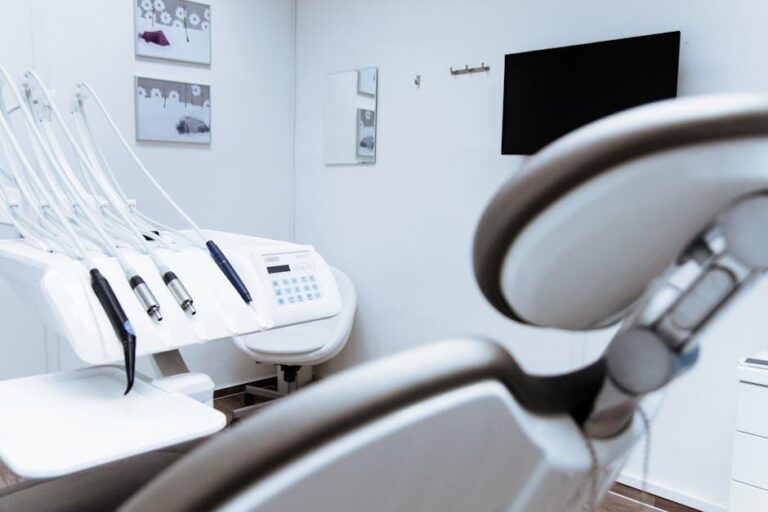
Experts Scramble to Address Lack of Access to Dental Care, High Oral Health Disease Burden in Alabama – American Dental Association
Alabama faces an urgent public health challenge: a significant lack of access to dental care combined with a high burden of oral health diseases. This growing crisis has prompted dental experts, public health officials, and the American Dental Association (ADA) to join forces and develop solutions for improving oral healthcare access across the state. Understanding the root causes and efforts underway can help stakeholders and residents alike tackle these challenges effectively.
Understanding Alabama’s Oral Health Crisis
Oral health serves as a window to overall health, reflecting personal wellness and access to care. Unfortunately, Alabama ranks poorly compared to many states in the U.S., struggling with rates of untreated tooth decay, gum disease, and other oral health complications.
- High rates of untreated dental decay: Children and adults alike suffer from untreated cavities that can lead to severe complications.
- Limited availability of dental providers: Rural and underserved communities in Alabama face dental shortages, with many counties classified as Dental Health Professional Shortage Areas (HPSAs).
- Disparities tied to socioeconomic status: Low-income families and minority populations often experience greater barriers to accessing dental care.
- Consequences beyond oral health: Poor dental health contributes to chronic diseases, missed school and work days, and a decreased quality of life.
Key Challenges Limiting Dental Care Access in Alabama
Several factors contribute to the access gap that complicates oral health outcomes in Alabama:
- Rural geography and infrastructure: Many residents live in remote areas with limited transportation and few dental clinics.
- Provider shortages and uneven distribution: Urban centers often have more dentists, while rural counties remain underserved.
- Insurance and financial barriers: Medicaid coverage for adult dental services is limited, and uninsured individuals face high out-of-pocket costs.
- Lack of oral health education: Awareness about preventive care and the importance of regular dental visits is low in affected communities.
American Dental Association’s Role and Strategic Initiatives
The ADA plays a pivotal role in collaborating with Alabama’s healthcare community to spearhead evidence-based strategies to improve oral health. Some of their key initiatives include:
- Expanding community dental clinics: Supporting federally qualified health centers (FQHCs) and mobile clinics to reach underserved areas.
- Advocacy for expanded Medicaid dental benefits: Campaigning at the state level to improve dental coverage, especially for adults.
- Promoting teledentistry: Leveraging technology to provide consultations and oral health education remotely.
- Workforce development programs: Training mid-level dental providers and incentivizing dentists to practice in rural regions.
- Public oral health campaigns: Raising awareness about the importance of oral hygiene and preventive care.
Case Study: Mobile Dental Clinics Bridging the Gap
One notable success story in Alabama is the deployment of mobile dental clinics that travel to rural and underserved areas, offering preventive services, screenings, and urgent dental care. The impact of these mobile units has been profound:
| Metric | Before Mobile Clinics | After Deployment |
|---|---|---|
| Children receiving dental exams | 30% | 65% |
| Emergency dental visits reduced | High | Moderate |
| Community oral health awareness | Low | Improved |
Benefits of Improved Dental Access for Alabama Residents
Enhancing access to dental care offers wide-ranging benefits for individuals and the community at large:
- Reduction in preventable oral diseases: Early intervention helps prevent serious dental issues.
- Improved overall health: Oral health is closely linked to conditions such as diabetes and heart disease.
- Economic advantages: Fewer emergency room visits and lost workdays reduce healthcare costs and boost productivity.
- Enhanced quality of life: Better oral health improves nutrition, speech, confidence, and social interactions.
Practical Tips to Overcome Dental Care Barriers in Alabama
While systemic changes are underway, residents can take proactive steps to maintain oral health despite access challenges:
- Utilize community health resources: Look for local health departments or non-profit clinics offering free or reduced-cost dental services.
- Practice daily preventive care: Brush twice a day with fluoride toothpaste, floss daily, and limit sugary foods and drinks.
- Leverage teledentistry platforms: Some dental providers offer virtual consultations to help with minor issues or advice.
- Stay informed about Medicaid and insurance benefits: Enrollment in available programs can significantly reduce out-of-pocket costs.
- Advocate for oral health: Engage with local policymakers and support initiatives aimed at increasing dental care funding.
First-Hand Experience: A Resident’s Perspective
“Living in a small town in northern Alabama, dental care has always been tough to come by. The nearest dentist is over an hour away, and I struggled with cavities for years. Thanks to a mobile dental clinic that visited our community last year, I finally got preventive care and learned how to keep my teeth healthy. I hope these services become permanent because they’re a lifeline for people like me.” – Maria J., Alabama resident
Conclusion: Collaborative Efforts are Crucial for Alabama’s Oral Health Future
Alabama’s ongoing struggle with lack of access to dental care and its high oral health disease burden underscores a critical public health priority. Through coordinated efforts by the American Dental Association, state agencies, healthcare providers, and communities, there is hope for meaningful progress. Expanding dental coverage, increasing provider availability, and investing in innovative care delivery models will be key to ensuring every Alabama resident enjoys better oral health outcomes.
By staying informed and involved, individuals can also play an essential role in overcoming dental care challenges. Together, Alabama can build a healthier, brighter smile for its residents—one equipped with access, education, and quality care.


